FORT CARSON, Colo.-A new food service course is giving Fort Carson cooks a recipe for success.
The monthly, two-week course serves as a refresher for cooks who were deployed for 12 months or more and as an enhancement to new arrivals fresh out of Advanced Individual Training, said Chief Warrant Officer 2 Joseph Wisniewski, Mission Support Element Logistics food advisor.
Food service specialists rarely perform in their job field while deployed, since most of the dining facilities in Iraq and Afghanistan are run by contractors. Most who do work at dining facilities downrange serve as quality assurance officers or contract officer representatives, Wisniewski said.
"It's designed for the returning Soldiers and the new Soldiers coming out of AIT to give them a little more experience before they actually do go work in the dining facility," he said. "There (can be) a decline in their skills when they get back into the dining facilities."
The classes touch upon the basics the cooks learned in AIT, but also cover more advanced skills to make meals more appealing to Soldiers, said Gregory Joell, one of the course's contracted instructors.
"We give them a little bit more than the basics with a little twist of culinary arts, but not to the extent that they can't take it back to their dining facility and reuse it," Joell said.
Guest instructors teach the cooks such advanced skills as fruit carving and making pastries.
"I liked (the class that Melody Money) gave," said Pfc. Darlene Witham, a cook from 1st Brigade Combat Team, 4th Infantry Division. "When I was in culinary school I learned some carving like she showed us today. It's one of the advanced things you would learn for a catering company. I learned a lot from it."
Money, a certified executive chef from the American Culinary Federation taught a class April 23 on fruit carving. Money showed the cooks how to make detailed garnishes out of fruit peels that would usually land in the trash bin and centerpieces out of melons.
The techniques they learned in the refresher course, which ran April 13-24, could be incorporated at the dining facilities without adding much time to meal service.
"If they take it back and apply it, and the management actually lets them apply it, it doesn't take that long," Joell said. "They could definitely do it. Everything out of this course can be reused in the dining facility, and we stress that throughout the course."
Although the meals are based on nutritional needs of Soldiers, food service specialists also focus more on taste and appearance of the meals.
"I think food service has combined both. That's where information from nutrition comes in," Joell said. "You take nutrition and know which food has the carbs in it or what foods have the high protein and incorporate it into the menus while still making a good product that the Soldiers want."
While the instructors and guest instructors lead all of the classes, the students often have lessons of their own to share with classmates, Joell said.
"Most of them come in with experience - even the young Soldiers. Some of them worked at five-star restaurants before they came in," Joell said. "They are bringing a lot of skills to the table. It's about taking those skills and taking them back and applying them to the facility.
"If they can do that, it will definitely bring the Soldiers that are not there (eating) into the facility, and the ones that are there will continue to come back in. That's our goal."
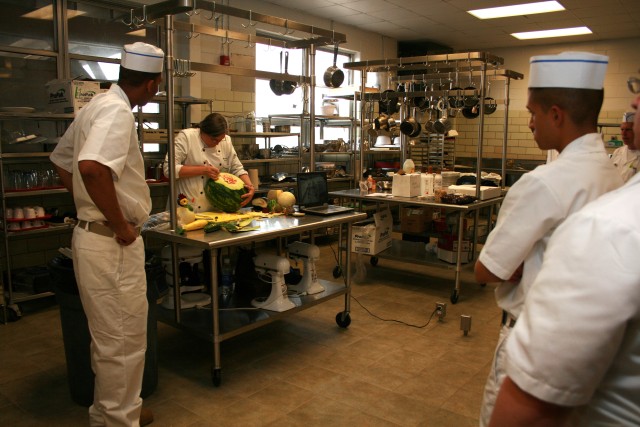
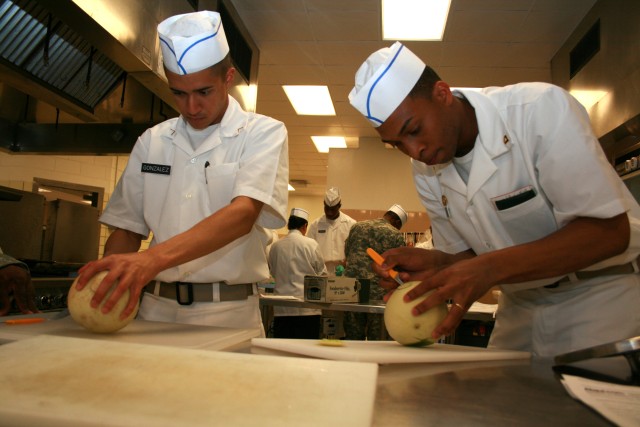
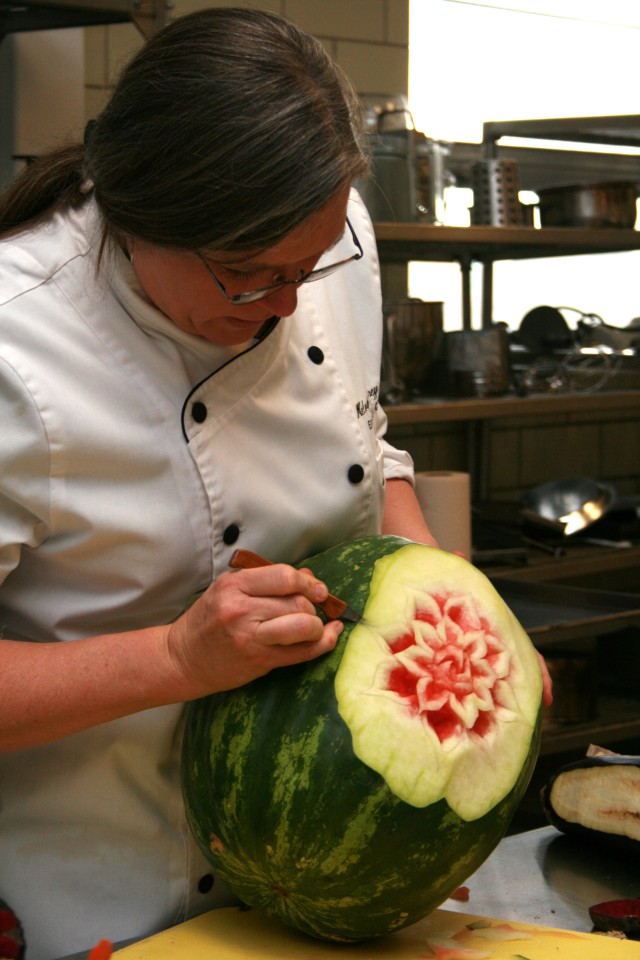
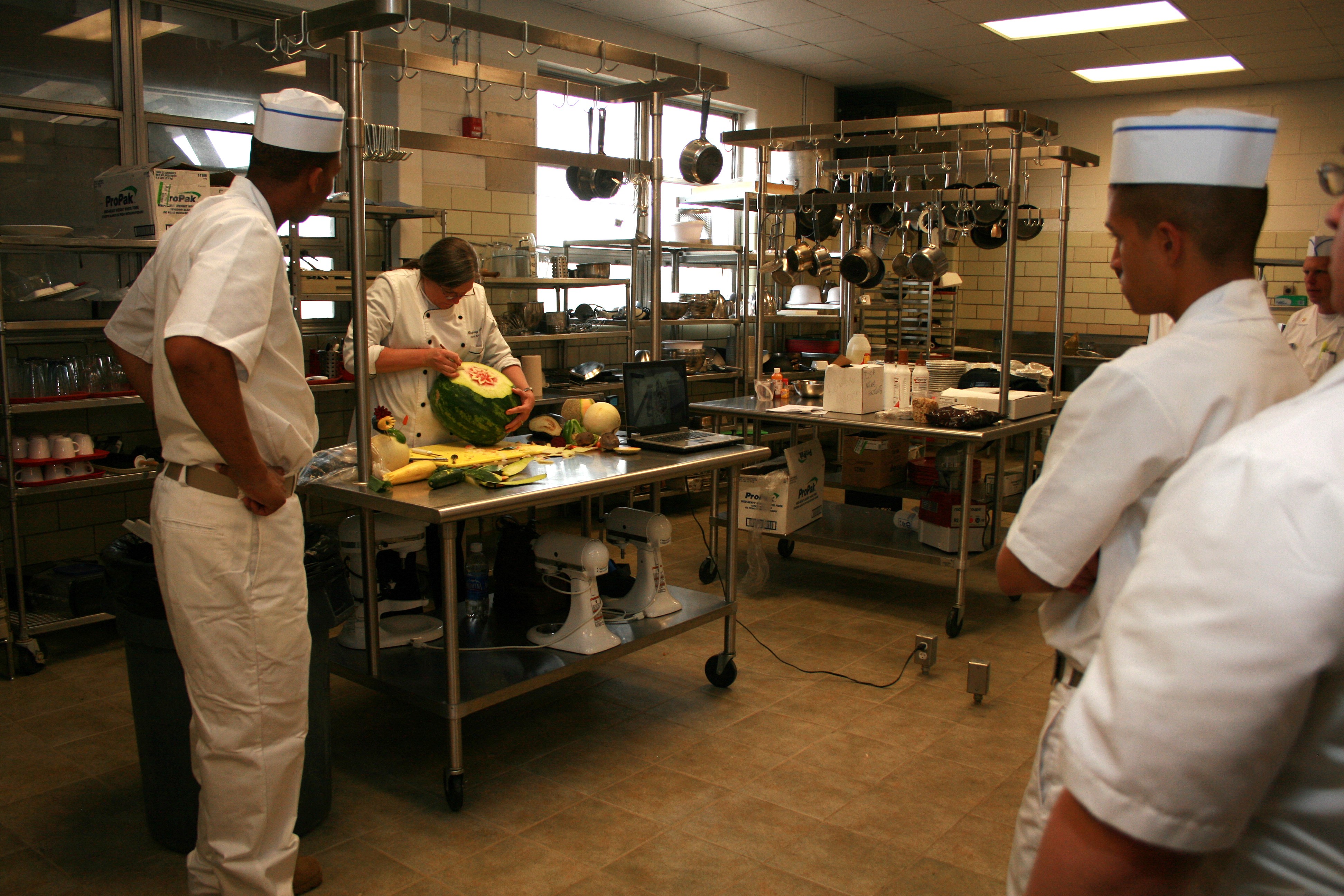
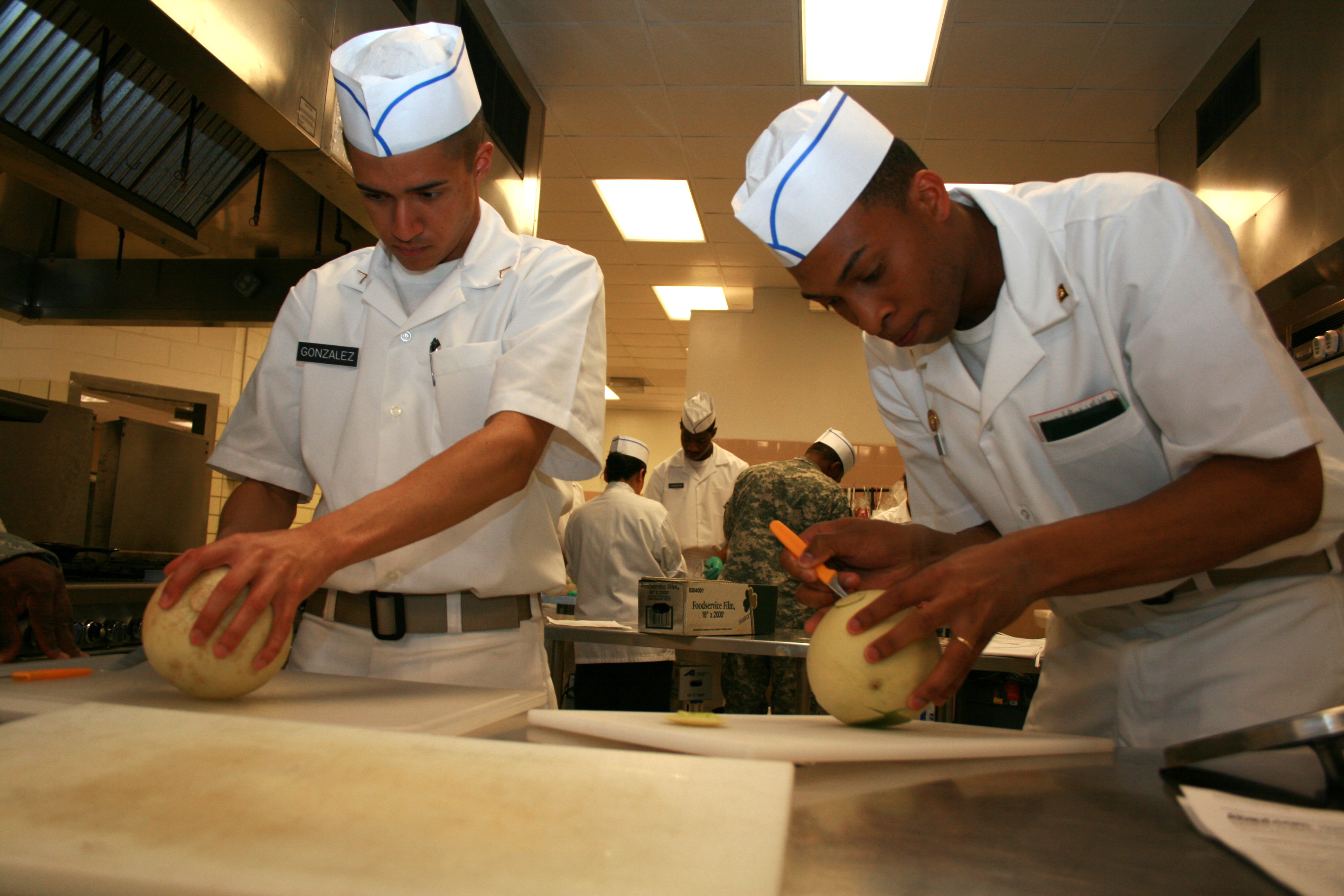
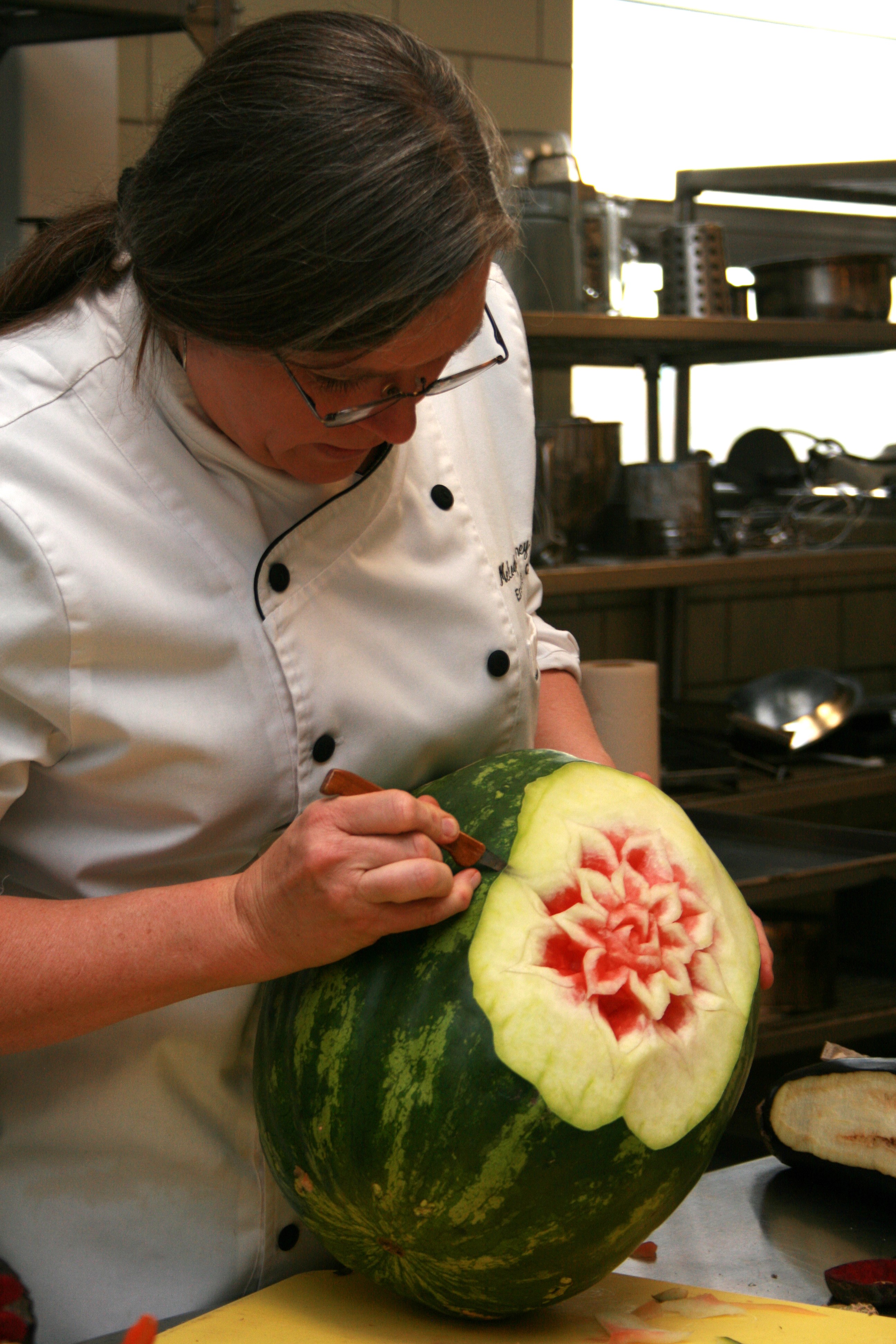
Social Sharing